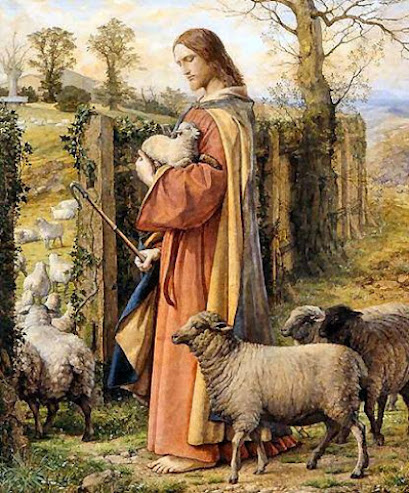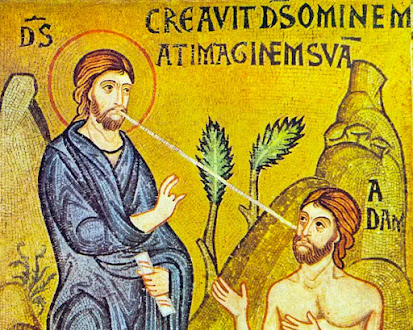In my Father’s house there are many dwelling places.
If there were not,
would I have told you that I am going to prepare a place for you?
Augustine asked an interesting questions about this passage. He saw that there were already many mansions in the Father's house before Jesus went to prepare anything, mansions for which the elect were already predestined, and so he asked in what sense such mansions that already existed needed to be prepared? He answered his own question by noting that we ourselves are already the house of God, the temple of his presence (see First Corinthians 3:17). But then he goes on to ask:
"But why has He gone away to prepare it, if it is ourselves that He prepares: if He leaves us, how can He prepare us? The meaning is, that, in order that those mansions may be prepared, the just must live by faith"- Saint Augustine
He withdrew from sight, according to Augustine, so that faith could make us more fit dwelling places for the most high, so that we could become more able to fully embody the promise of being living stones in God's building and temples of his Spirit, no longer limited by our own senses or understanding.
There is another sense in which mansions were prepared as well. In himself Jesus brought our own humanity, risen and glorified, into the divine life of heaven. We will dwell with God in heaven precisely to the degree that we are joined with that divine life by the sacrament of his human life. In this sense, he himself was the place he prepared for us.
"And thus God will be all in all; that is, since God is love, love will bring it to pass, that what each has, will be common to all. That which one loves in another is one’s own, though one have it not one’s self. And then there will be no envy at superior grace, for in all hearts will reign the unity of love."- Saint Augustine
If all this talk of heavenly mansions seems too abstract, we can take comfort in knowing that it did to Thomas as well.
“Master, we do not know where you are going;
how can we know the way?”
We too can take comfort in the answer of Jesus. We don't need to understand esoteric metaphysical principles of beatific union. Instead, we rely on our relationship with a person. We listen to and follow him by faith whether we fully understand or not, and so are assured of the promise of life.
Jesus said to him, “I am the way and the truth and the life.
No one comes to the Father except through me.”
The resurrection of Jesus is our hope. In it all the promises of God found their answer. All of the hopes that seemed to have been dashed by history turned out to find a greater fulfillment than anyone would have dared to guess.
We ourselves are proclaiming this good news to you
that what God promised our fathers
he has brought to fulfillment for us, their children, by raising up Jesus
The final fulfillment of the promise of the resurrection is when we shall all be united with him, sharing, as he does, in the life of the Father, when God himself will be all in all. We do not see this with our senses now, but by faith we already begin to live it. And the as we do live by faith more and more we can even begin to taste it here and now.
Ask of me and I will give you
the nations for an inheritance
and the ends of the earth for your possession.













